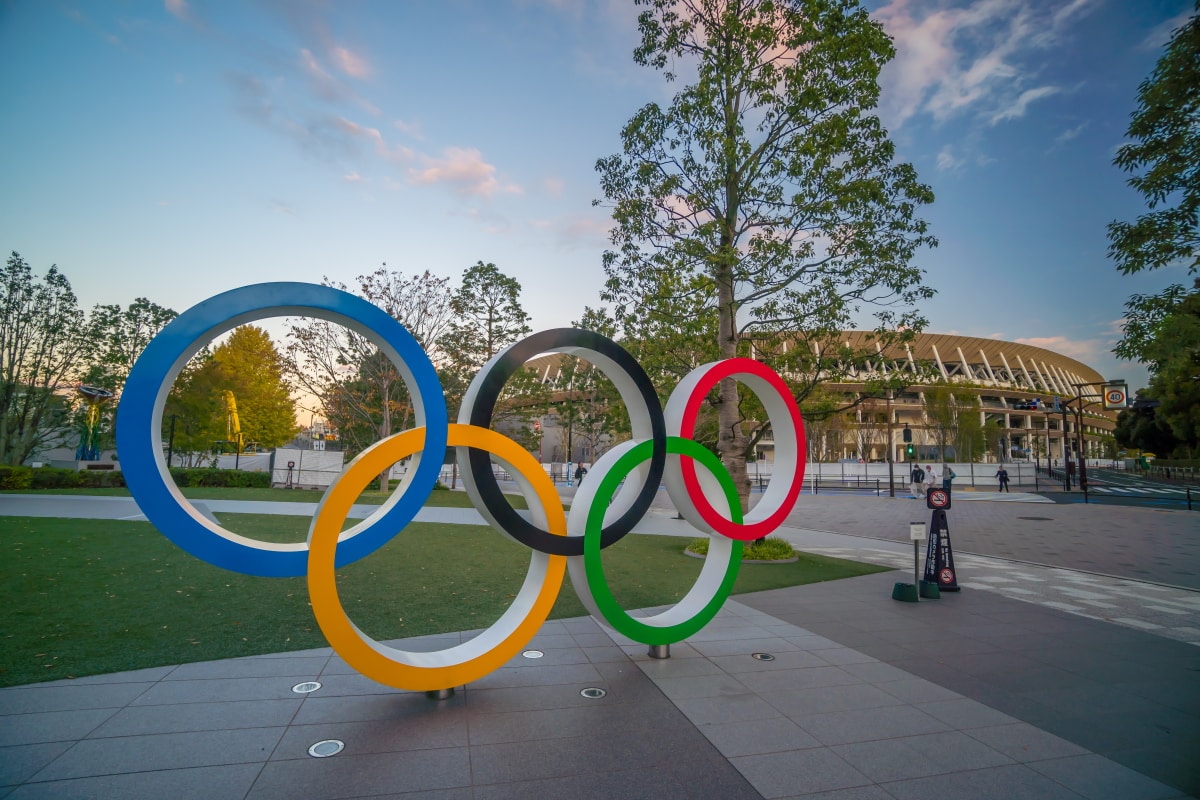For weeks, the Japanese government and the International Olympic Committee (IOC) tried to prolong the inevitable. But on March 24 they admitted defeat and suspended the Olympic and Paralympic Games, which were set to take place in Tokyo in July, because of the COVID-19 pandemic.
Conservative estimates contend the delay will cost the Japanese economy roughly $6 billion because of lost revenue this year, refunds for tickets, lost advertising and the cost of having to reorganize the games next year.
More pessimistic estimates suggest it could mean up to $18 billion in losses. But that is better than outright cancellation of the games, which analysts say could have seen the Japanese economy lose $72 billion.
Japan Olympics Postponement – a Symbolic Loss
For Prime Minister Shinzo Abe, the Olympic Games were supposed to be a moral boosting event to turn around the country’s fortunes. A symbolic occasion to show the world a revitalized Japan after years of economic woes, an ageing population, and the geopolitical shame of being overtaken and outranked by China.
Japan’s economy was already in trouble before the coronavirus epidemic hit, with economic output in the last quarter of 2019 down 7.1 percent. But now it looks likely to be one of the biggest casualties of the worldwide pandemic, though by how much of a contraction is still anyone’s guess.
Several stimulus packages have already been introduced to deal with the economic impact of the COVID-19 crisis, though last weekend Abe announced that he intends to push through another one, this time costing the state $530 billion, which would be the largest in the country’s history. It awaits parliamentary approval.
A sloppy response?
Except for the Olympics’ suspension, life in Japan has been relatively unaffected by the epidemic. Unlike most other countries, Tokyo has avoided enforcing strict shutdowns on businesses and restrictions on free movement, which means much more business activity is happening than in China, most parts of Europe and the United States.
How long this lasts, though, remains in doubt. On March 30, it strengthened border restrictions to prevent new “imported” cases being brought in by overseas travellers. This includes a ban on visitors from China, the US, South Korea and much of Europe.
Yet the number of cases is spiking again, with biggest daily increase in Covid-19 cases recorded on March 29. And some has criticized Japan’s comparatively relaxed response to this crisis, with the authorities testing much fewer people than South Korea.
The German Embassy in Tokyo on March 24, the same day as the Olympic Games were suspended, warned its citizens that “the risk of infection in Japan cannot be assessed seriously. It can be assumed that there are a high number of unreported infections due to the small number of tests carried out.”
Popular for now
A survey by Kyodo News Service, a Japanese newspaper, last week found that 78.7 percent of people supported the suspension of the Olympic Games – the first ever time in the history of the games.
It was most probably a sensible thing to do in terms of national image, given that Tokyo’s response to the COVID-19 outbreak has earned it some criticism in international media.
Different agencies in Japan contend that the cost of hosting the Olympic Games was anywhere between $12.6 billion and $27 billion. If suspension ends up costing $6 billion, which some analysts say is an underestimate, it could be represent a third of the entire cost.
Logistical Nightmare
Japanese organizers and the IOC reached an agreement that the Tokyo Olympics will be held from July 23 to Aug. 8 in 2021. However, the postponement of the games has brought up challenges and problems. Especially the logistics of managing contracts for advertisers and affected companies, as well as negotiations with the Olympic bodies of participating nations, poses challenges.
Japanese Prime Minister Shinzo Abe and IOC President Thomas Bach agreed to keep the “Tokyo 2020” branding despite the yearlong delay. This is most likely for advertising reasons, as merchandise and ceremonial medals have already been produced.
Optimistic observers and businesses reckon that with the Olympic Games being held next year, Japan could cash in if global markets surge in 2021. The global economy is expected to enter a recession this year, though large fiscal injections and stimulus packages introduced by governments across the world could prompt a “V-shaped” recovery, with global trade booming next year.










 Australia
Australia China
China India
India Indonesia
Indonesia Japan
Japan Malaysia
Malaysia Philippines
Philippines Singapore
Singapore South Korea
South Korea Taiwan
Taiwan Thailand
Thailand Vietnam
Vietnam Germany
Germany Hong Kong
Hong Kong USA
USA Switzerland
Switzerland Singapore
Singapore
 United Kingdom
United Kingdom







